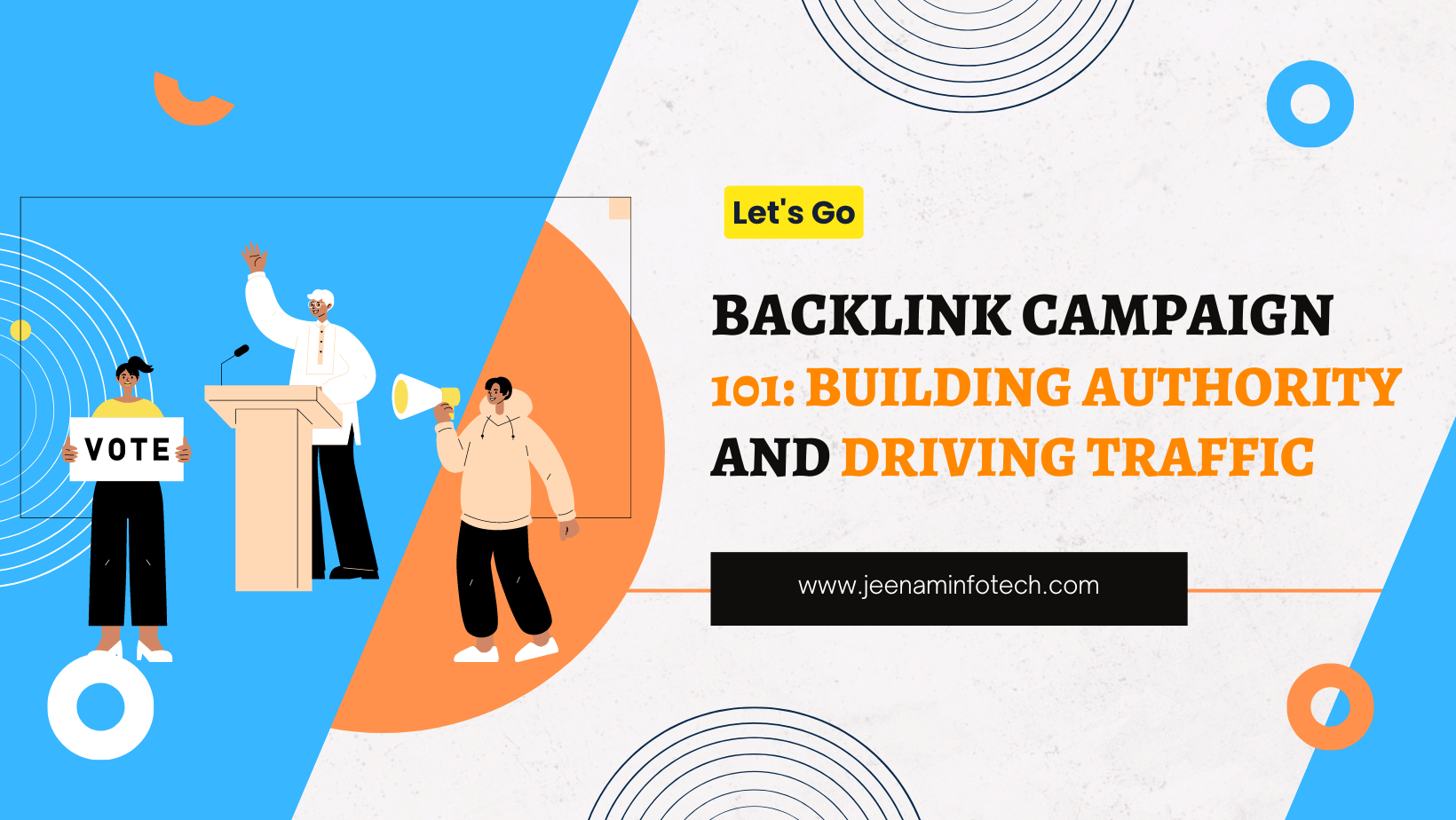How do you get well-known publishers and influencers in different industries to talk about you and link to your website? The trick is adapting to different contexts and cultures and using carefully planned keyword phrases.
Though there is more to international link-building, mastering these tactics will help your company stand out to consumers abroad. What additional important details must you know when working on an international SEO campaign?
Is Link Building Necessary?
The short answer is that link building is an essential off-page SEO technique for every website owner who cares about their site’s exposure, keyword ranks, and overall search engine rankings.
How is that possible?
Let’s start at the beginning with the following question to find the solution to it.
What is international link building?
Creating high-quality inbound links on websites hosted in different international and regional contexts is the long-term goal of international link building.
For example, an international link-building strategy can help if your website is based in the United States. Still, you want to expand it and enhance its worldwide keyword rankings.
In short, there are two ways in which an international link-building service might be beneficial to you:
- It attracts people from various countries to your website. More people will see your business as a result.
- It improves your site’s search engine rankings, making locating you easier for local customers.
Having hyperlinks within the same country, written in the same language, and using the same top-level domain (TLD) will emphasize that country even more.
Search engines can quickly determine your site’s location via IP address, language, and domain.
Backlinks as Recommendations
Most major international search engines treat links between websites as indirect recommendations. Therefore, the quantity and quality of these relevant links from other websites, often called ‘backlinks,’ play a pivotal role in determining search engine rankings.
Backlinks signal to Google and other search engines, signaling your site’s authority in its niche. They directly affect your website’s position in search results, significantly influencing how potential clients discover your website.
The more high-quality links your site earns from reputable websites, the higher your site’s credibility and position in search engine results.
Climbing the rankings ladder not only means increased visibility but also enhances the likelihood of attracting a target audience.
The Essence of ‘Natural’ International Link Building
Website owners naturally link to relevant and interesting websites, forming the basis for beneficial link partnerships.
Ensuring your website meets these criteria, ideally by engaging with other reputable, highly-visited sites that already possess ‘authority’ on the web, allows for the gradual development of ‘natural’ relevant link structures.
However, this process is time-consuming and influenced by numerous variables that may only sometimes be clear.
Strategic Active Link Building
Active link building is essential, especially in an international context, if you wish to expedite the process rather than solely relying on chance.
An effective link-building strategy can steadily enhance your global website’s visibility and authority across all your target regions.
This approach ensures that you actively seek out and create link partnerships, maximizing your international reach and solidifying your digital presence on a global scale.
Read More: Link Building for SaaS Sites: How Important Is It?
How To Find International Link-Building Pages
The first step in any successful international link-building campaign which identifying the pages with the greatest potential to attract visitors and expand your brand’s reach worldwide.
1. Visitor-Priority Pages
Focus on the most important pages for your website’s visitors. Pages like these frequently include:
- Explain the fundamentals of your company.
- Provide education or information.
- Get the most readers because of their value.
Your international link-building efforts will be most effective if directed towards these pages.
2. Google Analytics Insights
Take advantage of Google Analytics’ depth of data to find out which of your pages are popular with foreign readers.
- Determine which of your site’s pages are more prevalent in other countries by looking at visitor data broken down by country. This information reveals promising prospects for establishing connections on a global scale.
- The pages that attract the most visitors outside the United States should be highlighted. These should be your top priorities when conducting optimization and link-building.
3. Homepage Priority
Your website relies heavily on its homepage because it is frequently the initial point of contact for new visitors.
Important details about your company are stored there and usually connected to other places online. These inbound connections are invaluable because they can send traffic to your main website. Create a captivating first impression for your brand by focusing on link-building services for your homepage.
4. Improve product pages
Sales and conversions can be directly attributed to product pages. Given their importance, investing in expanding these pages’ international link profiles can bring considerable gains.
You can increase the probability of making sales and expanding your customer base by attracting visitors from other countries to your product pages.
5. Use Blog Posts
Blog postings can be extremely useful tools for achieving both of these goals. They frequently provide reliable information, which in turn draws readers.
Although natural growth for blog posts is possible, intentional link-building can significantly increase their readership.
You can increase your blog’s worldwide reach and grow a committed audience by linking to individual pieces carefully.
International link-building strategy in Search Engine Optimization (SEO)
Off-Page SEO is more difficult to get right than On-Page and Technical SEO, and that’s before you include the challenges of SEO Testing and UX SEO, which are commonplace among international businesses implementing an International SEO Strategy for international link-building services.
Many of these businesses employ SEO Managers, individuals with technical expertise who play the role of the business by filling the gap between tactical and strategic to achieve SEO goals.
#1. Find Competitors’ International Backlinks
Find out where your competitors are getting their International links from initially. This can be facilitated using Ahrefs, Moz, or SEMrush. Find out which sites are linking to them by analyzing their link profiles.
Doing so will help you learn which of your niche’s domains are popular internationally. Your outreach efforts can then be directed toward those most like the sources you’ve identified.
#2. Links from relevant sites
International link-building services depend significantly on relevance. Try to get links from reputable sources useful to your specific field.
Links from foreign fashion blogs, publications, or e-commerce sites may be given more weight than links from unrelated sources if you work in the fashion sector.
Your links will have more value for visitors and search engines if you use an effective approach.
#3. Linking Countries with the Same Language
It is necessary to change your SEO approach in order to reach countries that share a language but have regional variances when you are targeting those countries.
#4. Make Use of Anchor Text in Context
Naturally using keywords throughout your content is what we call “contextual anchor text.” You should include local dialects or regional phrases as anchor text for worldwide SEO in the same language.
Anchor text that is locally relevant and follows SEO guidelines is a winning combination.
#5. Contact National Social Leaders
International link-building strategies that involve engaging with local social influencers and opinion leaders can be extremely effective.
Work with key opinion leaders in your target market to develop engaging content (such as interviews, reviews, and guest blog pieces) that will appeal to the influencer’s audience.
Their support and promotion can result in high-quality inbound links and expanded brand awareness in the target market.
#6. Keywords for a Particular Area
Use keywords related to the location in the text, meta tags, and links.
You can rank higher in local search results by optimizing for these terms.
For example – You may use “colour” in the UK and “color” in the US if your audience consists of people who speak English as their native tongue.
#7. Use Of Localization tools
Localization tools refer to software applications or platforms that facilitate the process of adapting digital content, such as websites, software, or multimedia,
utilizing localization tools since they facilitate the optimization of your website for local search engines. For the purpose of illustration, let us consider Google Search Console.
The utilization of this tool enables the implementation of vital International SEO components.
In order to optimize the visibility and accessibility of your multi-language website, it is imperative to provide language and regional targeting indicators for your pages, hence simplifying search engine recognition and indexing.
The absence of hreflang tags on your website might affect its capacity to attain sufficient visibility and discoverability in local search results.
Localization tool serves to improve efficiency in managing numerous languages, ensure cultural appropriateness of material, and enhance the efficacy of foreign SEO link-building services.
It is vital to consider that employing this approach will result in time efficiency, enhanced precision, and improved ability to respond to the requirements of a diverse worldwide audience.
International Link Building: Challenges
In this section, the three primary challenges that must be addressed to effectively execute international SaaS SEO link-building will be presented.
1. Removing Language Barriers in your international link building campaigns
When it comes to international SEO, language is important. The most effective way to reach customers in other countries is to tailor your marketing messages to their language, culture, and tastes.
Simply translating something isn’t always enough. Specifically, you require language localization in multiple languages.
Translation is only the beginning of localization.
It requires familiarity with your intended audience like –
- Search habits
- Language
- Slang
With this information, you may reduce the possibility of misdirecting your website’s optimization efforts.
Example:
The phrase “apartments” in the United States may not be understood by British tourists who are more familiar with “flats.” These types of differences are crucial for international seo. The rate of user participation and the number of inbound links change based on cultural factors.
2: Dealing with Cultural Differences in Content and Interaction
Content relevance and relationship building are two crucial areas that are affected by culture.
- Cultural Barriers and Content-Relevant Communication
It is essential to take into account cultural differences when creating material. Content is received and understood in a variety of ways across cultural contexts.
For example, in Western cultures, people may feel more comfortable with an official and formal tone that shows respect for their privacy.
In contrast, cultures that place a premium on warmth and interpersonal interactions, such as those seen in Latin America, may prefer a more personable and emotional tone.
It’s important to ensure that jokes, idioms, and cultural references are appropriate for the intended audience.
- Making Strong Connections
Relationship building with foreign counterparts demands an awareness of cultural differences. Learn about other cultures, tailor your approach to each one you encounter, and be flexible.
If you want your international relationship to succeed, it’s important to choose projects that both parties can get around.
Strategies for a Diverse Search Engine
It’s not true that Google is the only search engine available internationally.
For example:
Search engines like Baidu and Yandex wield considerable power throughout Asia. Due to Baidu’s emphasis on Chinese language content, it is important to optimize for simplified Chinese characters if you want to be seen in China. However, Yandex ranks Russian websites based on domain age and hosting location.
Furthermore, there are search engines that focus on a particular type of user. Each search engine has its algorithm and set of ranking variables.
The Ecosia caters to those who care about the environment, while DuckDuckGo prioritizes user privacy. When aiming for a specific demographic, it is crucial to adjust your SEO tactics to correspond with the preferences of these search engines.
When creating links for an international audience, it’s important to consider both broad SEO best practices and country- and engine-specific considerations.
Your worldwide SEO approach will be more flexible and effective if you take into account regional differences.
How to deal with spammy links
Toxic backlinks can harm a website’s rankings and should be eliminated immediately. Toxic backlinks might result from past spam attacks or failed link-building efforts. If you don’t get rid of them, it might negatively impact your search engine rankings or even get you penalized by Google and others.
The quality of the linking website determines whether or not the link is useful. Links from the following sources are examples of low quality:
- Websites for SEO links only
- Spam comments on other sites, such as “great content, check out Abc here,” have nothing to do with the subject.
- Sites that overuse optimized anchor text (i.e., keywords that exactly match the page’s content)
- Websites whose content is either unclear or copied from another source
- Links from foreign markets to your site that don’t make sense
You can learn the extent of the problem with spammy backlinks by conducting a link audit to see if they exist.
Downloading backlinks and evaluating their quality is made easier with the help of tools. Using Google Search Console’s disavow tool, you can eliminate bad links once you’ve located them.
Wrapping It Up
A strong web presence is of the highest priority. Professional sass link-building services from Jeenam Infotech can help your site reach its full potential. Build your profile in the digital world. Join us, and you will achieve unprecedented results.







